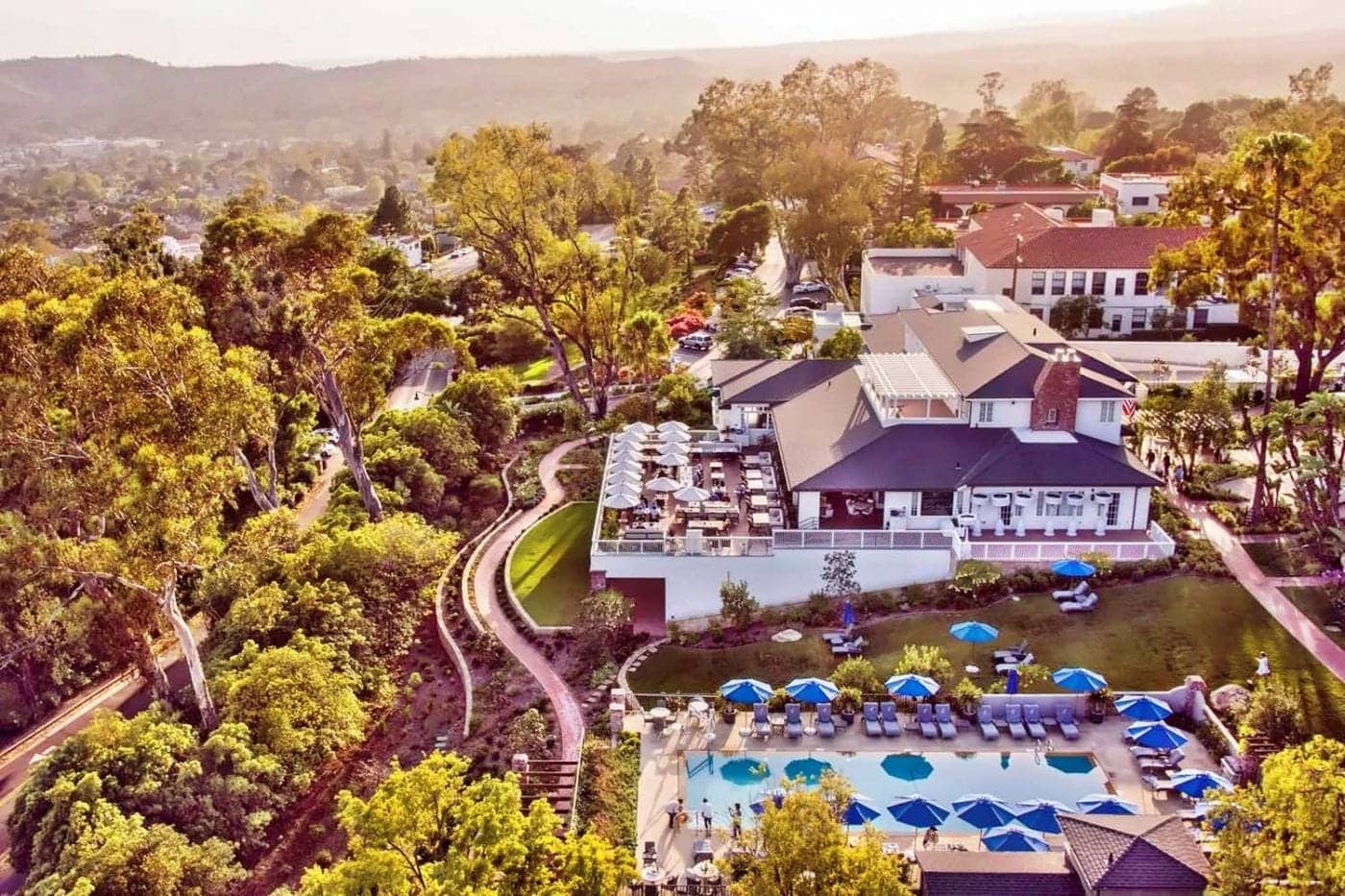The sale of Santa Barbara’s Belmond El Encanto for $82.2 million signals a refined focus on luxury hospitality ventures under LVMH
LVMH has agreed to sell El Encanto, its historic Santa Barbara hotel, for $82.2 million, marking a notable recalibration of the luxury conglomerate’s hospitality strategy. The sale reflects LVMH’s pivot away from properties with solely regional appeal, possibly in favor of growing its Bulgari Hotels & Resorts portfolio, which aligns more directly with the group’s brand equity in luxury lifestyle and global cultural capitals. The move can signal a deepening commitment to consolidating its hospitality vision under its maisons, reinforcing the company’s core identity and long-term positioning.
El Encanto—acquired by LVMH’s Belmond division in 2019 as part of a $3.2 billion deal has long occupied a revered place in Santa Barbara’s hospitality landscape, known for its early 20th-century California architecture and sweeping coastal views. The 90-room hillside retreat, nestled along the Pacific coastline northwest of Los Angeles, will be acquired for $82.2 million by a partnership between brothers Justin and Tyler Mateen and the investment firm Culver Capital, according to representatives for the buyers. At approximately $900,000 per room, the sale price aligns with recent resort transactions along California’s tightly regulated coast, where limited land availability continues to elevate entry costs, according to Alan Reay, president of Newport Beach–based brokerage Atlas Hospitality Group. The new owners of El Encanto intend to assume management of the property directly, signaling its departure from the Belmond portfolio. However, as LVMH sharpens its focus on properties that extend its global luxury influence, the company appears to be streamlining assets that sit outside its most strategically potent markets. Rather than simply scaling back, the sale suggests a redirection of investment into flagship locations that carry not just heritage but brand-building resonance across continents.
That redirection is taking shape most visibly through Bulgari Hotels & Resorts, LVMH’s design-forward and brand-synergistic hospitality venture. The group has announced the opening of a Bulgari property in Miami Beach, slated for 2028—which would’ve been its second U.S. location following the Los Angeles site, which was initially slated to open in 2025. However, the resort that was planned for a 33-acre hillside property in Benedict Canyon, featuring 58 rooms and suites, and eight private residences was halted by the city of Los Angeles due to concerns about its environmental impact for the sensitive Santa Monica Mountains area. This location pivot by Bulgari also represents a push into high-visibility markets with established luxury consumer bases, drawing strength from Bulgari’s DNA as a Roman jeweler and exclusive lifestyle symbol. Unlike standalone hotels such as El Encanto, which operate largely on geographic and experiential charm, the Bulgari concept offers a vertically integrated brand experience that reinforces LVMH’s ambitions beyond luxury and sheer aesthetics in hospitality.
In an increasingly crowded luxury hospitality space, LVMH’s decision underscores a broader strategy: brand synergy across channels is becoming as critical as retail in the evolving luxury landscape. While El Encanto remains a celebrated property, its detachment from LVMH renders the property simply less essential within the luxury group’s portfolio during an era where experiential extensions must carry narrative/storytelling value. As the group continues to build out its hotel portfolio, expect LVMH to deepen its integration of hospitality with maisons that offer high cultural cachet and strategic continuity.
